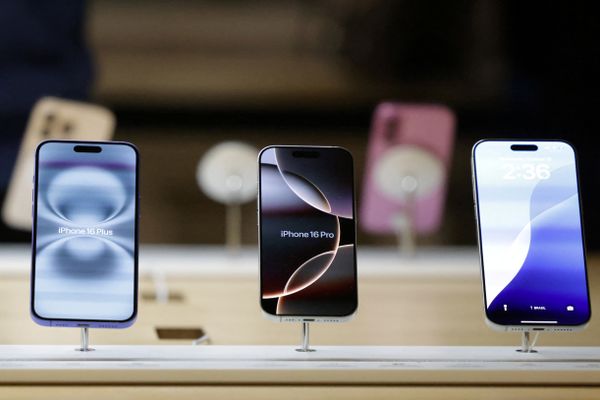BENGALURU, April 4 — Your favorite iPhone could soon become much pricier, thanks to tariffs.
US President Donald Trump imposed a series of sweeping tariffs on countries around the world that could drastically alter the landscape of global trade, and consumer goods like iPhones could be among the hardest hit, analysts said yesterday, with increases of 30 per cent to 40 per cent if the company were to pass on the cost to consumers.
Most iPhones are still made in China, which was hit with a 54 per cent tariff. If those levies persist, Apple has a tough choice: absorb the extra expense or pass it on to customers.
Shares of the company closed down 9.3 per cent yesterday, hitting their worst day since March 2020.
Apple sells more than 220 million iPhones a year; its biggest markets include the United States, China and Europe.
The cheapest iPhone 16 model was launched in the US with a sticker price of US$799 (RM3,595), but could cost as much as US$1,142 (RM5,139), per calculations based on projections from analysts at Rosenblatt Securities, who say the cost could rise by 43 per cent — if Apple is able to pass that on to consumers.
A more expensive iPhone 16 Pro Max, with a 6.9-inch display and 1 terabyte of storage, which currently retails at US$1599 (RM7,200), could cost nearly US$2,300 (RM10,350) if a 43 per cent increase were to pass to consumers.
Trump imposed tariffs on a wide range of Chinese imports in his first term as president to pressure US companies to bring manufacturing either back to the United States or to nearby countries such as Mexico, but Apple secured exemptions or waivers for several products. This time, he has not yet granted any exemptions.
"This whole China tariff thing is playing out right now completely contrary to our expectation that American icon Apple would be kid-gloved, like last time," Barton Crockett, analyst at Rosenblatt Securities, said in a note.
Apple did not immediately respond to a request for comment. Many customers pay for their phones over a period of two or three years through contracts with their cellular providers.
However, other analysts noted that iPhone sales have been floundering in the company's major markets, as Apple Intelligence, a suite of features that helps summarise notifications, rewrite emails and give users access to ChatGPT, has failed to enthuse buyers.
Expert reviews have suggested that the features, while innovative, do not provide enough of a compelling reason to justify upgrading to newer models.
The stagnation in demand could put additional pressure on Apple's bottom line, especially if costs rise due to tariffs.
"We expect Apple to hold off on any major increases on phones until this fall when its iPhone 17 is set to launch, as it is typically how it handles planned price hikes."
Even with some production moving to Vietnam and India, most iPhones are still made in China, and those countries were not spared from tariffs either, with Vietnam getting a 46 per cent levy and India's coming in at 26 per cent.
Apple would need to raise its prices by at least 30 per cent on average to offset import duties, according to Counterpoint Research co-founder Neil Shah.
A potentially sharp price hike could dampen demand for the smartphone and give South Korea's Samsung Electronics an edge, as the Asian country faces lower tariffs than China, where all iPhones sold in the US are made.
Rosenblatt Securities' Crockett said that negotiations between Apple, China and the White House are likely.
"It's hard for us to imagine Trump blowing up an American icon ... but this looks pretty tough."
— Reuters




